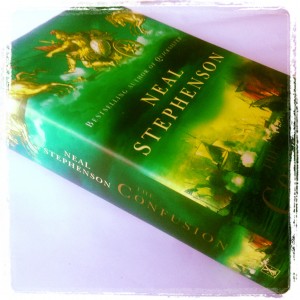As with all good genres, Fantasy has a few conventions that simply must be followed. I am of course generalising massively, but it’s good fun, so there.
- Weapons are never simple. Why have a sword, when you can have the enchanted sword of Ashkerah, home to the demon Myshogoth? Why have an axe when you can have the Axe of the Great Beard, handed down through a hundred generations of great beard wearers? Even a simple knife is the dagger of Plenty, taken from the tomb of the mighty Skoloth and bearing the jewel of Lyanna, ancient priestess and wearer of diaphanous gowns. In a world where everyone is almost certainly involved in violent actions at some point, weapons become the car and house and smart phone all in one, the ultimate status symbol. What kind of a hero would you be if you simply carried ‘a sword’? hah, I spit on your simple piece of pointy metal. No, when it comes to fantasy, weapons are never simple.
- People don’t swear. Picture the scene. Your blood brother has just lost his hand fighting the Dragon Master of Elleth. Simultaneously, you have watched the woman you’ve spent the last 200 pages trying desperately to find whisked away by said Dragon Master just seconds before you would have grabbed her. On top of that, you’re out of arrows and the Orcs are closing in. Put in that situation, I would probably be saying ‘fuck’ quite a lot, or at the very least ‘shit’ or ‘bollocks’. However, it turns out that in these times of blood, violence and no table manners, our heroes are impeccable with their language, muttering perhaps a God’s name under their breath, at a real push. I should mention that this isn’t true if you read George R R Martin, or Joe Abercrombie. Their characters are far ruder and as such cannot qualify as bona fide heroes, merely dudes and chicks with swords. Sorry, them’s the brakes.
- Magic users are wusses. Sometimes there’s an excuse and sometimes there isn’t. Perhaps we could blame the lack of cheap gyms on fantasy worlds, but the fact is, the life of a magic user is clearly entirely incompatible with a regular workout. You wouldn’t need much, just an hour on the treadmill every few days. But no, it’s pretty much the law. No magic and muscles. I blame the magic schools for not educating their students properly. Any good place of learning would ensure that their students understood the importance of physical fitness and health in a busy lifestyle. Particularly when so many of their pupils are destined for a life on the road, adventuring, being threatened regularly with a painful death and so on. Ho hum.
- Dwarves are grumpy. Whether this the ultimate manifestation of short man syndrome or something more sinister, I’ve never figured it out, but it’s safe to say that the people known as dwarves are a bunch of miserable sods. Not only are they miserable, but they are normally all-too-happy to spread the misery around some. Of course, they use that grump to hide their heart of gold, lest they be viewed as big girls’ blouses by their tough guy adventuring pals. However, were I adventuring with said grumpy bastard, I think I would find it all too tempting to knife the moany sod in the middle of the night and run the risk of missing out on the soft squishy bit that should emerge at some point near the end of the book.
- Fantasy guys don’t like to share. Whether it’s women, swords or emotions, Fantasy characters just don’t enjoy sharing their stuff with anyone. I imagine their round the fire chats to be much like that of the Wiggum lad from Simpsons.
“So, do you like, umm, stuff?”
“What stuff?”
“Umm, like swords and stuff?”
“Ahhh, therein lies a tale, let me tell how I came upon “hoarfrost thunderfuck”, my trusty blade”
(2 hours later)
“So, ummm, how about other stuff?”
“Huh?”
And so on… not much in the way of exploring their inner feelings I’m afraid.
- Don’t go underground. Despite what their brain should be screaming at them and indeed what everyone else is actually screaming at them, your average heroic hero will happily plunge deep into the earth in search of a good adventure. Of course, he probably hasn’t read many fantasy books and is therefore ignorant of the inevitable horde of goblins/giant spider/huge scary monster thing/ghosts/evil termites (delete as applicable, unless you really hate your character, in which case just throw everything at the stupid bastard) that dwell in the deep. Nonetheless, this feels like a feeble excuse when facing a deep tunnel, lined with webs and general ‘really? You really wanna go down there?’ vibes.
So there you have it, a few of the choicer gems from the wonderful world of fantasy. Have I missed any? Are you even now readying your mighty pen of Zenthrax to smite me for my impertinence? Let me know.

